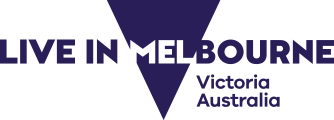Whether you’re managing personal or business finances, Australia’s stable banking system means your money is secure in our banking institutions.
Our unit of currency is the Australian dollar (A$) with 100 cents making up every dollar.
It’s common to pay for things in Melbourne with:
- credit and debit cards
- EFTPOS
- online payments
- cash
Banking options to help you manage your money
Our deregulated banking system has many local and international financial service providers.
In fact, Melbourne is home to more than a quarter of Australia’s financial services companies and Victoria has a long-standing AAA credit ratings (Standard & Poor’s and Moody’s) with a stable outlook from both major credit agencies.
With more than 30 different banks in Melbourne, there are plenty of financial service providers to help you or your business grow.
Our Big Four major banks are:
- National Australia Bank (NAB)
- Commonwealth Bank (CBA)
- ANZ bank (ANZ)
- Westpac
Protecting money in Australia
The Reserve Bank of Australia (RBA) is Australia’s central bank that contributes to the stability of the Australian currency, full employment, and economic prosperity and welfare of the Australian people.
The RBA is an independent central bank that is responsible for governing Australia’s monetary and financial systems, payment system policies and other financial matters.
The Australian Securities and Investments Commission (ASIC) is the official government body for corporate, markets and financial services regulation. ASIC looks after both corporate and consumer interests.
ASIC ensures that all banks follow the correct procedures to ensure your money is properly protected.
MoneySmart is a useful website run by ASIC that offers free and impartial financial guidance and tools.
Fees and charges of Melbourne banks
Most Melbourne banks charge fees for:
- transactions
- maintaining bank accounts
- loans
- credit and debit cards.
Internet banking is popular for transferring money, paying bills and viewing statements. Many Melburnians also use Automated Teller Machines (ATMs) to withdraw cash and make deposits. Australian banks can sometimes charge higher fees for transactions over the counter in local branches.
Tip: Ask your bank for information about its fees to ensure you know what you’re being charged for.
You can compare bank and credit union account fees and charges before you arrive:
Business banking in Melbourne
Most Melbourne banks and credit unions offer a range of business products, such as:
- business bank accounts
- cheque accounts
- business loans
- overdrafts.
Products, fees and charges, and interest rates change from bank to bank. It’s a good idea to speak to a registered accountant about specific banking requirements for your business.
To fast track the process of setting up your business banking, register your business name (if required) and obtain an Australian business number (ABN) before you apply for a business account.
Find out more about opening a business bank account.
Personal banking in Melbourne
To open a personal bank account when you first arrive in Australia you will need your passport, a valid visa and confirmation that you arrived in Australia within the last six weeks.
If you are applying for a bank account more than six weeks after arrival, you will need to provide:
- 100 points of identification (e.g. a driver’s licence, birth certificate or other secondary-form of identification); and
- your passport.
These documents help to keep your funds secure.
Visit the ASIC banking webpage to find out more about setting up a personal bank account and about different types of bank accounts.
